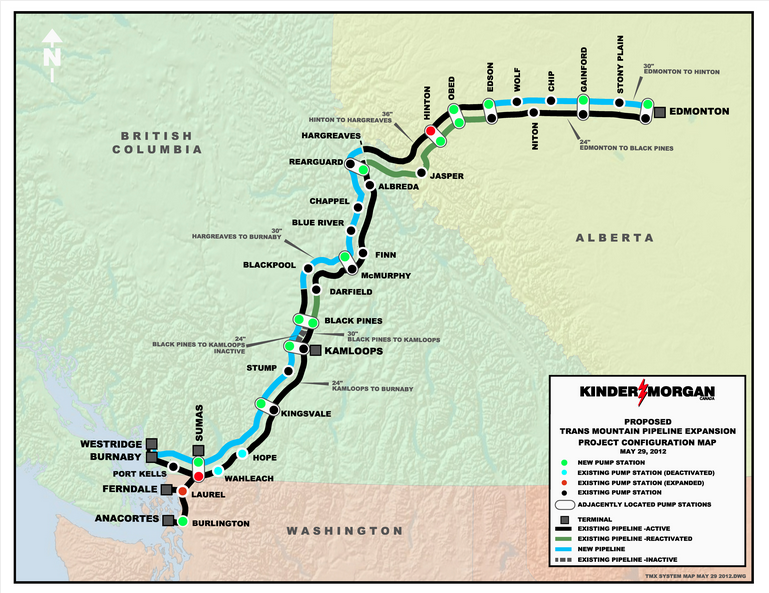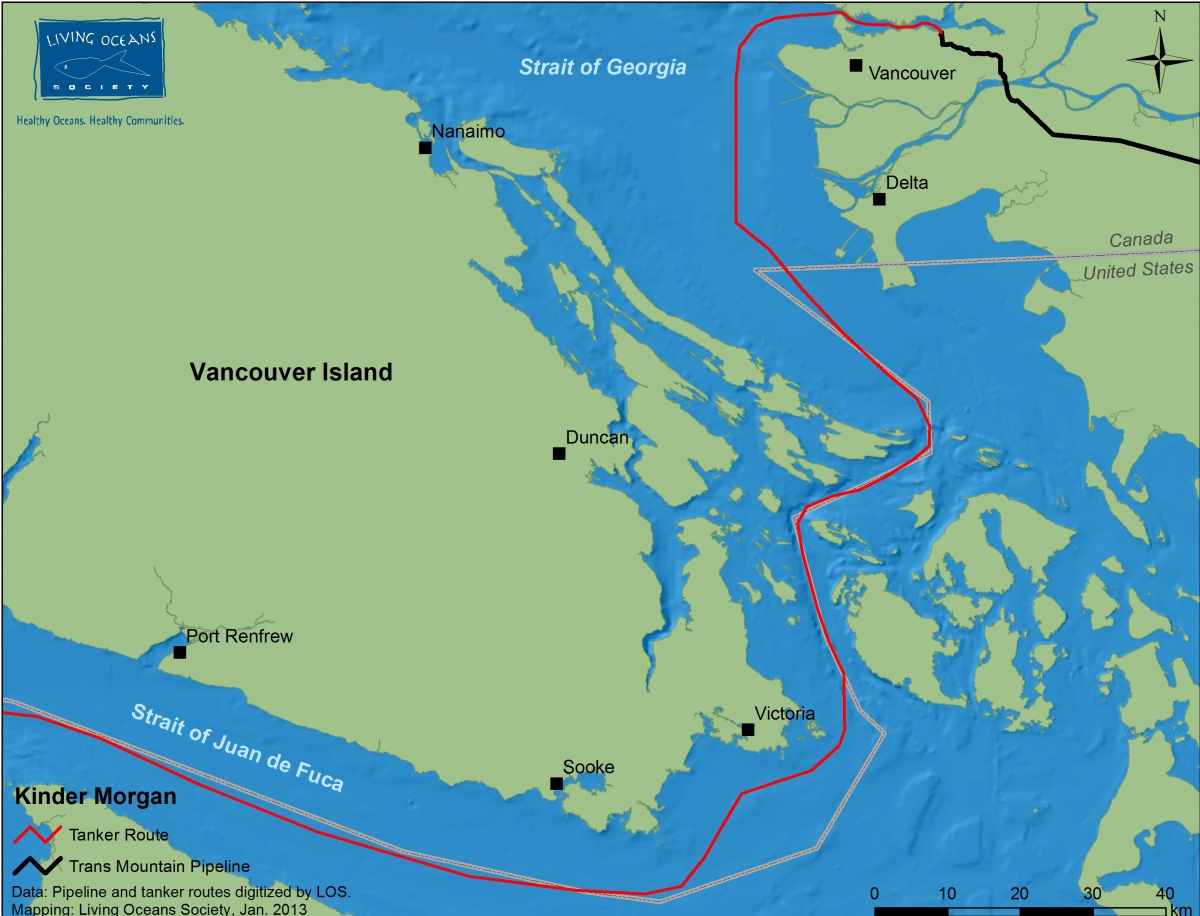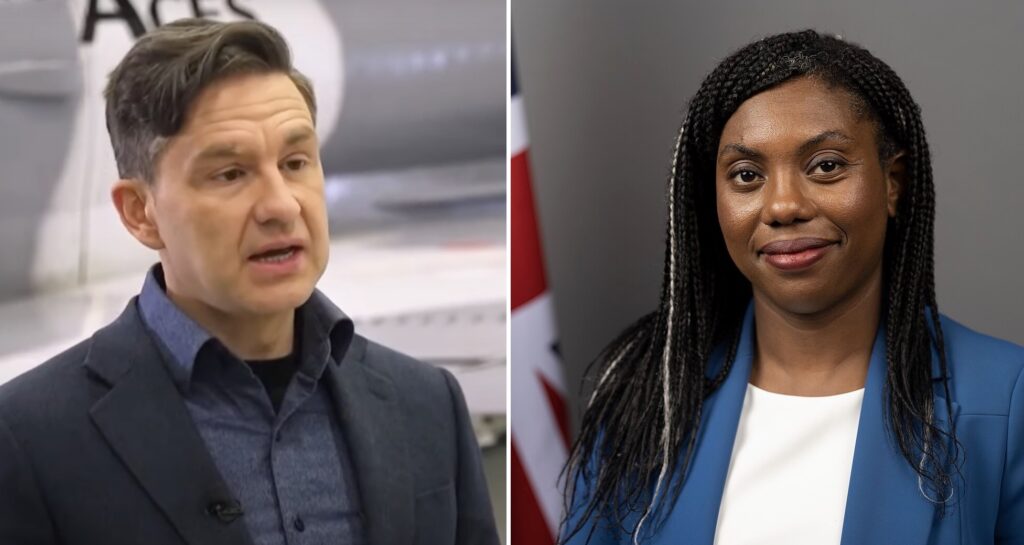The Canadian National Energy Board (NEB) rejected a request this month from the U.S. Environmental Protection Agency (EPA) to extend the deadline to apply as a participant in the public hearings on Kinder Morgan’s Trans Mountain oil pipeline expansion.
The EPA was unaware of a February 12 deadline to apply as a participant in hearings on the proposed $5.4 million expansion of the Vancouver-to-Edmonton Trans Mountain pipeline, which would increase its capacity from 300,000 barrels per day (bpd) of diluted bitumen to 890,000 bpd.
The pipeline expansion, which is supported by 13 oil companies, will free the flow of landlocked Albertan oil to Asian markets overseas.
The EPA reportedly needed more time to “follow through with agency protocols and procedures” before applying to take part in the hearings, according to a notice filed with the NEB.
Media relations and communications advisor Hanady Aisha Kader said in an e-mail that the EPA is “reviewing information and considering any appropriate next steps in reviewing potential transboundary environmental impacts posed by the Trans Mountain Pipeline Expansion.>
Kader added that the agency “has been in touch with individuals, groups and government agencies in Washington State; Environment Canada; and Canada’s National Energy Board,” but could not give any further information.
Kinder Morgan Trans Mountain pipeline route.
Ben West, tar sands campaign director at ForestEthics Advocacy Association said that “it seems that the EPA didn’t have sufficient time to do their own internal process in order to apply within the short window the NEB put forward,” but found it “mind-boggling…that Harper would so publicly slap the U.S. government in the face in regards to this proposed pipeline project.”
This wouldn’t be the first time the U.S. and Canada have faced tensions over pipelines. Prime Minister Harper has criticized President Obama for “punting” the decision on whether to approve the proposed cross-border TransCanada Keystone XL pipeline. The pipeline’s development remains in limbo until the U.S. approves it.
Sven Biggs, campaign organizer for ForestEthics, observed that not only has the window to apply for NEB hearings been getting “smaller and smaller,” going from five months for the Enbridge hearings to twenty-eight days for Kinder Morgan, but “adding to the confusion, initially the NEB were telling folks that this comment period would start in April.”
Environmental groups on the Canadian side see the EPA being shut out of the hearings as an inevitable result of sweeping changes to environmental laws made by the Harper government in 2012. These changes included repealing the Canada Environment Assessment Act and replacing it with the CEAA 2012.
“CEAA 2012 replaced the CEA Agency with the NEB as the responsible authority for certain projects, such as pipelines, and imposed tight timelines on the completion of the review process,” Eugene Kung, a lawyer at West Coast Environmental Law, told DeSmog Canada.
Harper’s reform of environmental law has resulted in a review process that is “less democratic, less transparent, less thorough and less accountable,” said Kung.
After the changes made by the federal government, members of the public can only register to comment or intervene in an NEB hearing if they are ‘directly affected’ by the project being assessed, rather than an ‘interested party,’ as was the case prior to 2012. Whether or not the NEB will consider the EPA as ‘directly affected’ remains to be seen.
West thinks there is ample reason to see the EPA as a ‘directly affected’ party, since “there are clearly implications for the environment along [the] west coast of the U.S. if there was an oil spill from the tankers passing by Puget Sound and down the coast.”
Map of tanker route along the Washington border from Living Oceans Society.
“Furthermore, the EPA has expressed concerns regarding the carbon footprint of tar sands oil and should have the ability to submit evidence to the government of Canada in regards to these concerns,” West added.
Kung agreed that the impact of the Trans Mountain expansion is not limited by international borders, with “the dramatic nearly 700% increase in tanker traffic through the Salish Sea and the corresponding increase in a catastrophic oil spill[s]” ensuring lasting effects both in Canada and the U.S. The fact that the NEB is not considering the upstream or downstream impacts of the project on emissions from oilsands expansion and burning oilsands crude abroad “further demonstrates the shortcomings of the proposed environmental assessment,” said Kung.
According to Kung, the EPA now has the option of filing a judicial review to the Federal Court or Federal Court of Appeal about the NEB decision. The Harper government’s changes to the NEB Act means NEB decisions on whether it will consider the representation of a person (including the EPA) are final.
“As this situation demonstrates, the new Environmental Assessment regime places very strict limitations on public process to the point where the EPA may not be able to contribute their wealth of knowledge and experience in regulating Kinder Morgan with the NEB,” said Kung.
Kung explained that West Coast Environmental Law, along with ForestEthics and the Sierra Club, hosted two webinars to explain the NEB application process because of public confusion over the new rules.
“Many people reported difficulties navigating the complex application system,” said Kung, but “despite all the hurdles and challenges, 2,134 people, organizations and institutions had filed applications, including over 50 First Nations, municipal governments, concerned citizens groups, businesses and homeowners.”
Image Credit: ForestEthics Advocacy Association / Who Writes the Rules? A Report on Oil Industry Influence, Government Law, and the Corrosion of Public Process
Subscribe to our newsletter
Stay up to date with DeSmog news and alerts









